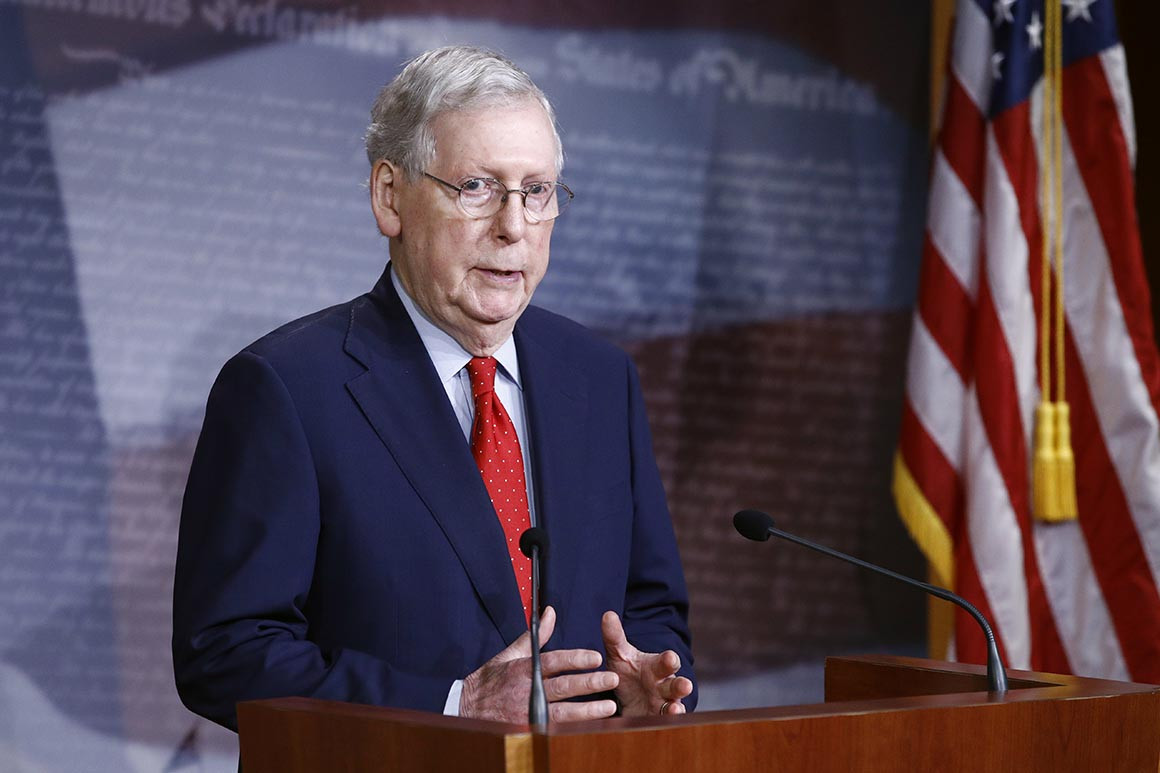In the realm of U.S. politics, the name Mitch McConnell resounds with both reverence and disdain. As the Senate Minority Leader, McConnell wields considerable power and influence within the Republican Party. However, recent controversies have cast a shadow over his leadership, sparking calls for his removal from key positions.
Amidst the political tumult, voices from within and outside the Senate chambers have grown louder in their critique of McConnell’s leadership style and decision-making.
The scrutiny intensified as the Senate voted to pass a massive $95 billion foreign aid bill, with more than half of Senate Republicans voting against it during the overnight session.
Senate Minority Leader Mitch McConnell placed no value on their arguments. He led the minority of 22 GOP lawmakers to hold hands with Democrats and get the bill passed. Even delivering a drama-filled speech in defence of the measure from the floor.
“I know it’s become quite fashionable in some circles to disregard the global interests we have as a global power, to bemoan the responsibilities of global leadership,” McConnell said. “To lament the commitment that has underpinned the longest drought of great power conflict in human history — this is idle work for idle minds, and it has no place in the United States Senate.”
Not surprisingly, McConnell and the group of 22 were trending on social media, where they were roasted for ignoring the wishes of a majority of Americans and for caring more about other nations than their own.
Mitch McConnell Should Step Down
Sen. Ted Cruz, a prominent Republican, believes that Mitch McConnell should resign from his leadership role, fueling the fiery debate surrounding McConnell’s future.
This push for change underscores a pivotal moment in the Senate’s dynamics and reveals the underlying tensions within the GOP leadership.
As discussions about McConnell’s tenure unfold, his potential removal remains a central point of contention.
The calls for action against McConnell reverberate through the political landscape, prompting a closer examination of the Senate’s power dynamics and the resilience of its members in shaping the future of American politics.
Throughout his tenure, Mitch McConnell has been at the centre of various leadership controversies that have sparked debates and discussions within political circles and beyond.
Mitch McConnell’s stance on foreign aid, particularly the recent $95 billion foreign aid package, has been a topic of contention.
Critics question allocating such a significant amount of funds to foreign countries while domestic needs remain pressing. McConnell’s support for or against foreign aid is pivotal in shaping his leadership image and priorities.
The impact of his stance reverberates within his party and among the American public, reflecting his approach towards international relations and aid distribution.
Scrutiny over Mitch McConnell’s health has also raised concerns about his ability to effectively lead in the Senate. Questions surrounding his physical well-being and potential implications on his decision-making have led to debates about the functionality of the Senate under his leadership.
The uncertainty surrounding his health adds a layer of complexity to his role and how it influences the dynamics and operations of the Senate.
McConnell’s health status is closely monitored, with implications that reach far beyond his well-being, impacting the broader functioning of the legislative body.
GOP Grapples with Internal Strife
Overall, Mitch McConnell’s leadership has faced challenges and controversies that extend beyond traditional political disagreements, delving into personal health and international policy realms. As these debates unfold, the intersection of leadership, health, and governance remains central in assessing McConnell’s role and impact within the political landscape.
Public sentiment towards McConnell’s potential removal remains divided, reflecting the broader spectrum of views within the electorate.
The implications of McConnell’s potential removal extend beyond party dynamics and significantly impact future political decisions. As the GOP grapples with internal strife, the outcome of this power struggle could shape the party’s trajectory and influence its stance on critical issues facing the nation.
Amidst the escalating calls for change and the growing chorus of discontent within Republican circles, the fate of Mitch McConnell hangs in the balance, poised at a crucial juncture that could redefine the party’s leadership landscape.
Mitch McConnell’s potential removal could have far-reaching consequences across the political landscape, sparking significant changes in Republican leadership and the progression of critical legislative agendas.
McConnell’s removal would undoubtedly trigger a notable shift in Republican leadership dynamics. With McConnell out of the picture, contenders for his position would emerge, vying to steer the Republican Party in new directions.
The vacuum left by McConnell’s departure could pave the way for recalibrating the party’s priorities and strategies, setting the stage for a potential redefinition of the GOP’s future direction.
The removal of McConnell holds the potential to usher in a new era of Republican leadership and alter the trajectory of critical legislative agendas, marking a pivotal moment in the political landscape.
By Geoff Thomas








